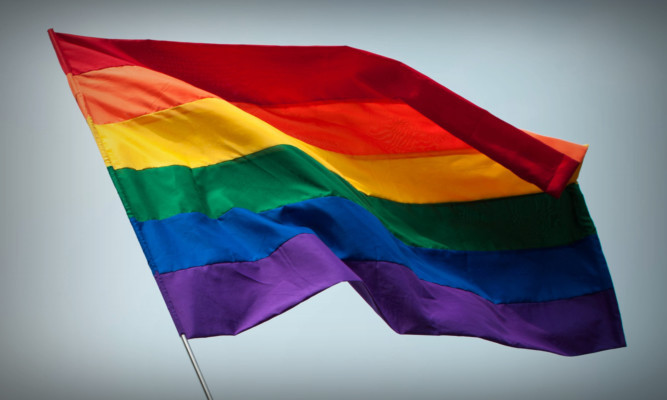Lesbian, gay, bisexual and transgender (LGBT) people in Scotland continue to face discrimination despite recent advances in the law and social attitudes, according to a report.
A total of 97% of LGBT people who took part in a survey said they have personally faced prejudice or discrimination in their lifetime.
Incidents reported ranged from homophobic comments and attitudes to physical attack, sexual assault and discriminatory treatment when accessing services.
The report published today by the Equality Network, Scotland’s national lesbian, gay, bisexual, transgender and intersex equality charity, is based on an online survey of 1,052 people from across the country conducted between November 2012 and March 2013.
It reveals that 89% of respondents believe LGBT people continue to face inequality in Scotland.
Almost half of LGBT people said they had experienced an incident of prejudice or discrimination in the month prior to the survey, rising to 79% within the previous year.
A majority still never or only sometimes feel able to be open about their sexual orientation or gender identity with their own family (52%), at work (60%) or when accessing services (71%), for fear of the prejudice they might face, according to the survey.
Furthermore, those living in rural parts of Scotland reported a significantly worse experience than those living in urban areas.
Results revealed 43% of LGBT people have moved, or considered moving, to live in a different area or out of the country altogether because of the discrimination that they have faced.
Campaigners said there was still much more to do despite recent changes in the law such as the legislation of same-sex marriage and called on political parties to set out how they will tackle inequality ahead of next year’s Holyrood election.
The Equality Network, which intends to conduct the survey within each parliament’s lifetime, has published recommendations in the report which it said are a “blueprint for progress” needed over the next ten years.
They include a call for the Scottish Government to publish an LGBT equality and human rights strategy and action plan.
Tom French, policy and public affairs co-ordinator at the charity, said: “The Scottish LGBT equality report reveals the stark reality of the prejudice, discrimination and other forms of disadvantage that LGBT people continue to face in Scotland.
“It is clear that while we have made welcome progress in recent years, there is still much more to do before LGBT people will experience real equality in their day-to-day lives.
“The scale of the challenge is considerable and with the next Scottish Parliament election rapidly approaching we will be looking to the Scottish Government, and all the political parties, to set out clear plans for how they will tackle inequality and make Scotland a fairer and more equal place for LGBT people to live.”
Speaking last week, Cathleen Lauder, a 38-year-old transgender woman from Edinburgh, said: “People think that because we’ve got same-sex marriage in Scotland, LGBT people now have equality but nothing could further from the truth.
“Being transgender in Scotland is still very difficult, attitudes can at times be back in the dark ages even in Edinburgh. I can’t count the number of times that I’ve had abuse hurled at me when I walk down the street just for daring to be who I am.
“It’s not enough for politicians to just sit back and hope attitudes will have changed in a few decades.
“I have to live my life now and being constantly reminded by other people that they do not consider you equal is one of the worst feelings there is. Something needs to change.”
A Scottish Government spokeswoman said: “Despite the significant progress made in relation to LGBT equality, particularly in recent years, we are aware of the inequality still facing LGBT people and communities today.
“There is no place for any homophobic, biphobic or transphobic prejudice or discrimination in modern day Scotland or anywhere else.
“We are working closely with key stakeholders in relation to addressing key priorities such as education and are continuing with the implementation of the Marriage and Civil Partnership (Scotland) Act 2014 to provide marriage equality for LGBT people.
“We are also working in partnership with public and third-sector organisations to address the causes of hate crime, to raise awareness of what hate crime is and how to report it.
“This government is one committed to promoting a more equal society which values Scotland’s diverse communities and the important role they play in enriching Scotland socially, culturally and economically.”
